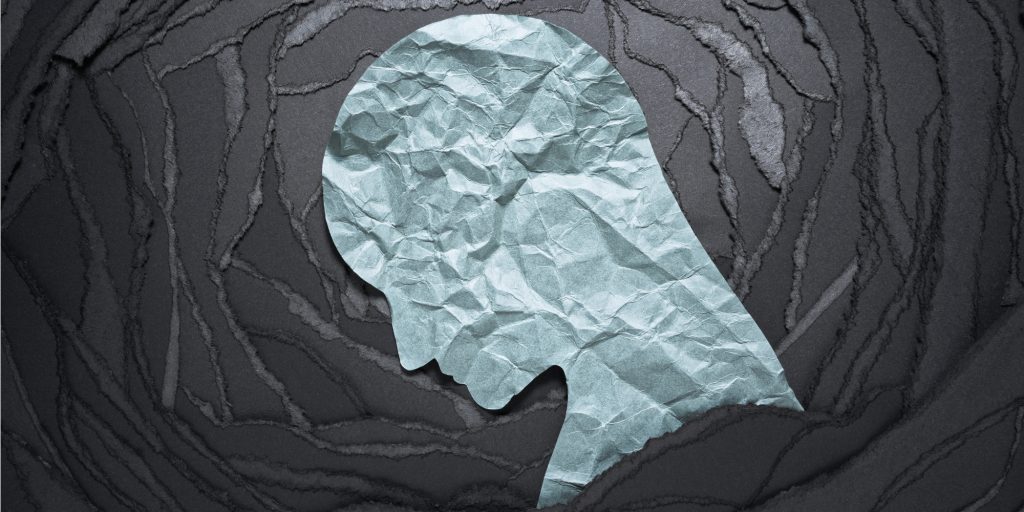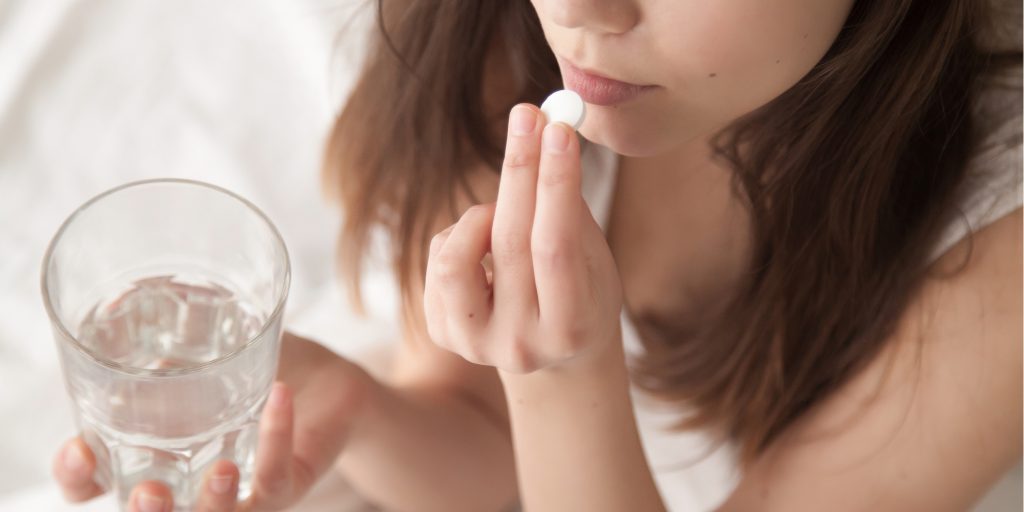Occasional anxiety is a part of life. However, if worry and stress are so prevalent that day-to-day responsibilities or quality of life are affected, an anxiety disorder may be the reason. Anxiety disorders are widespread in the United States, affecting nearly 20 percent of the population during any given year. One of the most common methods of anxiety treatment includes prescription benzodiazepines (benzos). While effective, benzos are a short-term solution and carry the risk of physical dependence and addiction. Fortunately, alternatives to benzodiazepines for anxiety are available, giving hope to those hoping to avoid this type of anxiety medication.
What Are Benzodiazepines?
Benzos are medications that slow down the body’s messaging system producing a relaxed or sedated effect. They are central nervous system depressants, similar to alcohol, but are only available by prescription in the U. S. Benzodiazepines treat anxiety disorders by increasing the effects of GABA, a natural chemical in the brain that regulates the activity in the brain that causes anxiety. Common benzos include Xanax (alprazolam), Valium (diazepam), and Klonopin (clonazepam ), to name a few.
Dangers of Benzodiazepines
Ultimately, benzodiazepines are most suitable for short-term use. This is due to the risk of side effects and benzo dependency, which can occur in as little as a few weeks to a month of regular use. Once a person is dependent, benzo withdrawals and potential rebound symptoms will occur if the medication is suddenly stopped. The withdrawals from benzodiazepines can be uncomfortable and dangerous, underscoring the importance of alternatives to benzodiazepines for anxiety.
Alternatives to Benzodiazepines for Anxiety
Anxiety disorders are treatable. However, as awareness of benzo addiction becomes more commonplace, substitutes for anxiety treatment are being considered more often. Some alternatives to Xanax and other benzos for anxiety treatment include lifestyle changes, non-benzo prescriptions, over-the-counter (OTC) remedies, and psychotherapy.
1. Lifestyle Changes for Anxiety
Lifestyle adjustments are tried and true methods to address chronic anxiety. While lifestyle changes for anxiety may not be enough to treat severe anxiety disorders, they will always support other methods of anxiety treatments. Lifestyle modifications include things like prioritizing sleep, nutrition, and exercise.
To explain, restorative sleep balances brain function, thereby improving function and reducing anxiety. Additionally, a diet consisting of whole foods and limited sugars and caffeine has anxiety-reducing properties. In conjunction with a healthy diet, alcohol should be avoided or greatly reduced in an effort to combat symptoms of anxiety. Regular alcohol use has an effect on GABA, the neurotransmitter needed for balanced brain chemistry.
Exercise may be the most important adjustment for reducing anxiety. Physical activity triggers the release of feel-good chemicals in the brain such as endorphins and serotonin. Yoga and other meditative activities are especially helpful in elevating mood and reducing stress.
2. Over-the-Counter Anxiety Medication
Benzos and other drugs like Xanax are not sold over the counter for anxiety treatment. However, OTC antihistamines (i.e., Benadryl/diphenhydramine) have been recommended as a short-term solution for anxiety symptoms. While there is likely not any harm in taking an occasional OTC antihistamine as an over-the-counter Xanax alternative, the sedating side effects are not ideal for regular use. In addition, rather than self-medicating, any symptoms of anxiety should be discussed with a mental health professional in case better options are available.
3. Prescriptions for Anxiety
In terms of prescription medications, benzodiazepines aren’t the only ones used to treat anxiety. Some non-addictive alternatives to benzodiazepines for anxiety available by prescription include:
- SSRIs (antidepressants)
- SNRIs (antidepressants)
- Beta-Blockers (blood pressure medications)
- Buspirone (anti-anxiety)
- Hydroxyzine (brand name Vistaril, a prescription antihistamine).
Usually, SSRIs are the first line of defense in anxiety treatment. However, they can take up to a few weeks to work. On the other hand, beta-blockers can be used off-label to reduce the physical side effect of anxiety, such as increased heart rate and jitteriness. Buspirone is an older anti-anxiety medication that is coming back into use, but as seen with antidepressants, this anxiety medication could take a few weeks to work. Hydroxyzine (Vistrial) is the only medication in the above list that could be used as needed. It is a prescription antihistamine that is also approved for anxiety treatment.
It is important to stress that while these prescription medication options are not habit-forming, they are not without side effects. Once started, these medications should not be stopped unless under the supervision of a medical professional. For that reason, these medications are most effective when paired with mental health support options like psychotherapy.
4. Anxiety Counseling and Psychotherapy
Therapy for anxiety is an effective treatment method that does not always include the use of medication. Unlike benzos or other medication for anxiety, therapy teaches people to how to recognize and manage their personal symptoms of anxiety. One of the most commonly used therapeutic methods is cognitive behavioral therapy (CBT). During CBT, an anxiety therapist teaches how to reframe negative thought patterns before debilitating anxiety symptoms have the opportunity to take hold. Anxiety therapy takes time and effort, but it is highly effective in treating anxiety disorders. If necessary, a combination of therapy and anxiety medications may be the best approach.
Help for Anxiety, Mental Health, and Substance Use Disorders in Ohio
At The Woods Parkside near Columbus, Ohio, our treatment team is well versed in managing all types of anxiety disorders. At our addiction treatment and mental health facility, one of the goals of anxiety treatment is to understand what triggers your personal anxiety and how to manage anxiety symptoms when they present themselves. We accomplish this through treatment in our residential or outpatient treatment programs. Additionally, the treatment team at The Woods at Parkside is able to simultaneously treat any co-occurring substance abuse disorders through dual diagnosis treatment.
To learn more about how to start your recovery you contact us online or call our admissions staff at 419-452-4818. You do not have to suffer from anxiety or substance abuse. With The Woods at Parkside, you can begin healing today.





























